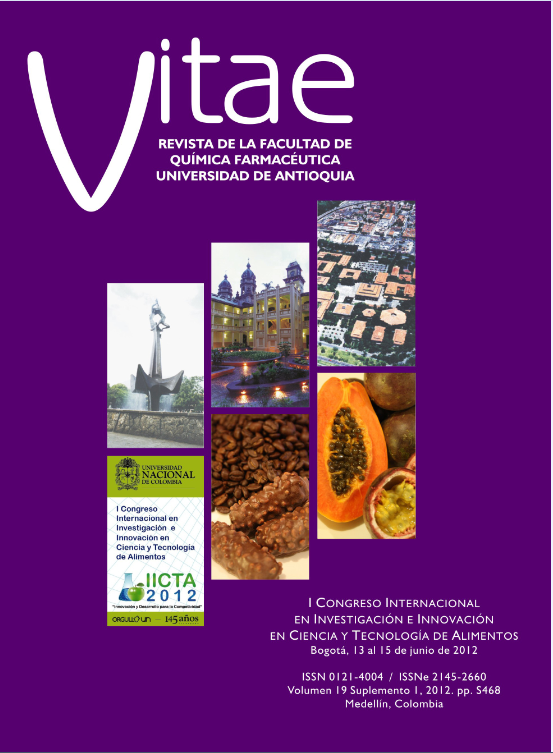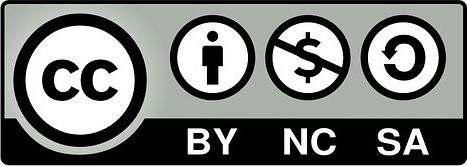I Congreso Internacional en Investigación e Innovación en Ciencia y Tecnología de Alimentos
DOI:
https://doi.org/10.17533/udea.vitae.12016Abstract
El gran crecimiento de la población mundial, sumado al hecho que la producción alimentaria no presenta un crecimiento similar, ha generado un déficit alimentario sin registros históricos. Lo anterior hace necesario el desarrollo de investigación en la que los principales objetivos sean la resolución de esta problemática. Latinoamérica es una región por excelencia agropecuaria, además que por sus características geológicas y ambientales presenta innumerables variedades de especies, tanto vegetales como animales. Cuenta con las condiciones que permiten el desarrollo de frutas y hortalizas con una propiedad de explotación agroalimentaria y base sostenible de una economía en crecimiento; tierras aptas para la cría de animales especializados en producción láctea y cárnica. Simultáneo al crecimiento económico de América Latina, los sectores productivos se unen a la academia con el fin de desarrollar nuevos productos y tecnologías por medio de los convenios de investigación agroalimentaria, dando herramientas eficientes para el avance tecnológico de la región. Adicionalmente, la abundancia de recursos con la que cuenta la región, posiciona a América latina como la “despensa” del mundo, siendo necesario que las autoridades académicas y los centros de investigación, desarrollen estrategias y aúnen esfuerzos con el sector productivo, con el fin de optimizar estos recursos disponibles, mejorando o aumentado la oferta alimentaria de la región.
Con lo anterior, es importante desarrollar la iniciativa de llevar a cabo el primer congreso IICTA 2012 con el fin de dar a conocer los diferentes avances en investigación tanto nacional, como internacional y posicionar al país como una autoridad en la socialización, acercamiento con los procesos académicos y conocimiento de las tecnologías en auge, enfocado al avance de la ciencia y tecnología alimentaria, y permitiendo el intercambio de información y la generación de vínculos entre los participantes, que permitan fortalecer los diferentes procesos investigativos y de innovación.
Downloads
Downloads
Published
How to Cite
Issue
Section
License
Copyright Notice and Open Access Statement
The Journal Vitae works under the Open Access license, and the published manuscripts remain available for the public, both on the Journal's website and in databases, under the Creative Commons license, "Noncommercial Attribution" and "Share alike" systems, adopted in Colombia. Hence, when the authors agree to publish in the Journal Vitae, they will not have the right to economic retributions on publications and reproductions through different diffusion media. The documents are freely available to the internet public, permitting users to read, download, copy, distribute, print, search, or link to the full texts and pass them as data to software. The only constraint on reproduction and distribution, should be to give authors control over the integrity of their work and the right to be appropriately acknowledged and cited.
Authors declare that:
-
They are the intellectual property owners and are responsible for all the information stated in the article.
-
This manuscript has not been submitted or published in other printed or digital media. They accept the responsibility for the judgments, opinions, and points of view expressed in the published article and, therefore, they exonerate Universidad de Antioquia and Journal Vitae from any process.
-
They exempt Universidad de Antioquia and Journal Vitae from settling conflicts or disputes related to the authorship of the referred article.
-
They accept the revision of the original manuscript by suitable personnel, and they bind themselves to perform the corrections appointed or suggested by the assessors.
-
Therefore, they know the editorial process and will not bind the Editorial Board of the Journal to assume any obligations regarding the volume and issue in which the article is published.
-
They transfer the rights of publication, reprinting, and distribution of the article from the moment of its approval, in print and digital format, without the right to economic rewards, and under the licensing conditions considered relevant by Journal Vitae.
-
They fully authorize Universidad de Antioquia and Journal Vitae to submit the published material to the diverse databases and indexing systems where the Journal can be found to comply with the requirements of the regulatory authorities to maintain the national classification of journals.
-
They will assume the article publication costs established for the current issue, and they will make the payment as soon as they are informed about the volume and the issue in which the final version of the article is published.
-
After the article is published, you can share digital or printed copies in a noncommercial manner. You will be able to use the paper in your institution or company for educational or research purposes, including the use in course programs.
Conflict of interest: Authors are responsible for recognizing and disclosing any financial or other benefits that could be perceived to bias their work, acknowledging all financial support and any personal connections with potential sponsors. Examples of such conflicts include receiving research funds or honoraria, serving on advisory boards, stock ownership, or employment and consulting arrangements. Authors without such connections should clearly state that they have no financial support or personal relationships that could be perceived to bias their work. All conflicts of interest should be disclosed on the author's identification page of the manuscript.










